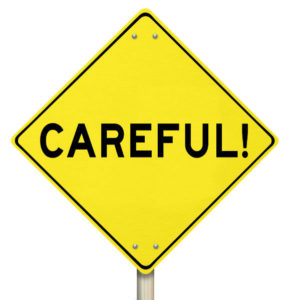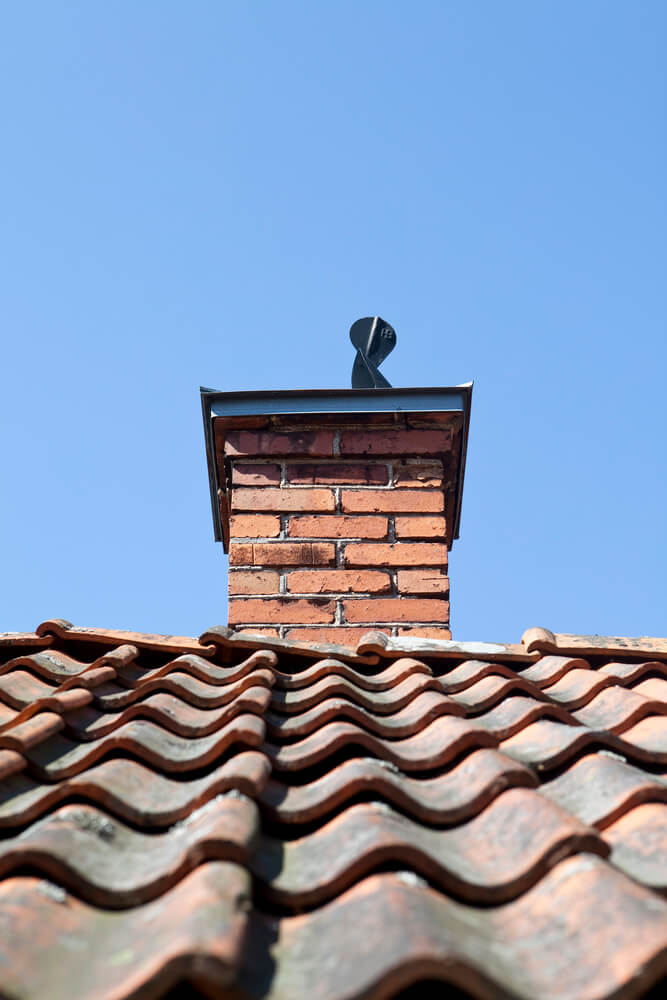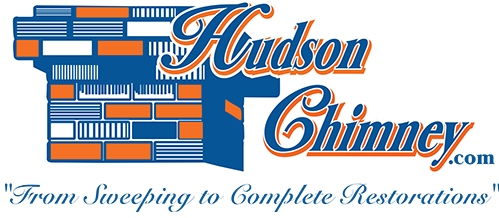by Mark Hudson | Feb 27, 2019 | Chimney Inspections
This is the best time to get your annual chimney inspection to ensure a problem-free spring and summer. After a long winter of fires, there may be winter damage, water damage, and inefficiencies because of dirty and damaged parts in your chimney. However, no matter how well your chimney and fireplace worked all winter, it won’t continue to work well if it’s not given proper maintenance. The best way is to schedule your annual inspection.
Inspections Prevent Dirty Chimneys &
Catch Hazards
After a full season of burning fires, your may find that your chimney flue is full of soot and creosote or even debris from animals or weather. Soot is a carbon residue released when your burn fires inside your fireplace. Creosote happens when you burn organic fuel. When these substances are not cleaned out on a regular basis, they can build up in the system. This can lead to numerous problems such as a drop in efficiency, obstruction of airflow, or even a dangerous fire hazard.
The National Fire Protection Association (NFPA) and the Chimney Safety Institute of America (CSIA) agree that chimney systems that are inspected regularly are safer. When your chimney is inspected, your technician will catch hazards big and small. This also brings down the risk of accidental residential fires–saving your lives and property.
Three Levels of Thoroughness
When you schedule your chimney inspection, we can help you determine which level of inspection your chimney needs too. We offer three levels of inspections, and the condition of your system determines which level your chimney needs.
- Level One – This is required annually when your chimney has been used in the same way and no changes have been made. Level one inspection is a visual assessment of the interior and exterior. Our expert techs examine the readily accessible portions as well as connections and appliance. At the end of this appointment, your chimney will have a clean bill of health.
- Level Two – This level is required before the sale or transfer of property, when any changes are made to the system, or when there has been a problem that affects the chimney. This inspection includes a Chim-Scan camera footage of the interior.
- Level Three – The most thorough inspection is required when serious hazards are suspected. This inspection require limited demolition to gain access to the suspected hazards. The chimney crown or interior wall may need to be removed, and then replaced following inspection.
As we come into the off-season, it’s important to schedule an inspection with a professional. Trust Hudson Chimney with your Chimney Inspection. We’re licensed, certified, and we are ready to serve you.
Call 904-282-4159 today to ensure your system is ready for the rainy spring days. If you neglect this important appointment, you could put your home and family in danger. A damaged chimney also allow animals and wildlife in, and it may not be safe to use once fall returns.
by Mark Hudson | Aug 8, 2017 | Chimney Inspections
To protect all parties and provide full disclosure to the prospective buyers prior to making the purchase, a chimney inspection should be scheduled. When a home-buyer finds their dream home, they want to know exactly what they’re getting. A standard home inspection will not thoroughly evaluate a chimney system. It can’t. Only a certified chimney expert has the training and experience to assess a chimney system, and present a valid report of their findings.
CSIA Inspections
The Chimney Safety Institute of America (CSIA) is the national standard for the chimney industry. CSIA certified chimney sweeps undergo extensive classroom and field training in order to meet this high standard. They also adhere to a stringent code of ethics to maintain certification. In addition, a re-examination or continued education every three years is required. These standards of education, training, and performance give them the capability to inspect chimneys and fireplaces of all kinds. Thus, giving them the CSIA signature desired by realtors, insurers, and code officers.
A standard home inspection is a visual observation the following:
- plumbing
- heating/cooling system
- electrical and appliance systems
- the roof
- foundations
- the basement
- walls
- doors
- windows
- chimneys
(Note: This assessment of the chimney is generally for structural soundness. It also doesn’t offer a report on the functionality of the chimney. Only a certified chimney sweep has the proper tools to assess the chimney system from top to bottom, inside and out, and offer a report of this kind.)
Level 2 CSIA Inspection
There are three levels of CSIA inspections required under different circumstances. The level 1 is the annual inspection required when no changes have been or will be made to the system. However, even if you had a level 1 inspection in the last year, a level 2 CSIA inspection is required before a sale or transfer of property. It is more thorough than a home inspection. It includes a visual inspection by video scanning of internal surfaces, and joints of the flue liner. This inspection includes everything in a level 1 inspection (standard annual inspection) plus the accessible portions of the chimney exterior and interior (attics, basements, crawl spaces). It will also address proper clearances from combustibles in accessible locations.
The home inspector may be able to use tools to determine if a chimney is plumb. Also, observe visible damage such as spalling or leaks, but to a home inspector a brick looks like a brick. A certified chimney sweep can determine if a chimney is constructed of the correct materials. Additionally, they can tell if the size and shape of the smoke chamber and flue are up to code, and if there are unseen hazards.
It’s in both the seller and buyer’s best interest to have a level 2 chimney inspection completed by a certified chimney expert, before a sale. Before papers are signed, or money crosses hands, the chimney report should be included in the disclosure statement.
Unlike home inspection companies, CSIA’s main priority is safety and keeping families and individuals safe. As CSIA members and certified sweeps, Hudson Chimney shares this priority, which is why we offer chimney inspections year-round. To schedule yours, call 904-282-4159.
by Mark Hudson | Oct 10, 2016 | Chimney Inspections
If you are familiar with real estate, mortgage brokers, or state and municipal codes, you may be familiar with home inspectors. The are NOT to be confused with a chimney inspector. Expecting a home inspector to properly assess the complex workings of the chimney system? That’s like expecting a sport’s car expert to inspect an RV. They are similar, yes. They have some of the same features, yes. However, there is a lot more to the RV than the car. Likewise, there is a lot more to a chimney than meets the eye.
 The CSIA Difference
The CSIA Difference
The Chimney Safety Institute of America (CSIA) has been the industry standard for training, education, and certification since the 1980’s. Members are required to undergo aggressive training and field hours. They also have to re-certify every three years by way of exam or continued education.
Only a CSIA Certified Chimney Sweeps® (CCS) has the experience and expertise to inspect the entire chimney system properly. The National Fire Protection Association (NFPA) along with CSIA recommends annual chimney inspections. There are three levels of inspections:
- Level One
This is the annual inspection. It’s scheduled when no changes are made to the chimney system. This inspection is a visual check of all easily accessible parts of the chimney system.
- Level Two
This inspection should be scheduled when the chimney system is changed in any way. For example, when fuel is changed, appliances are installed, or there has been parts repair or replacement. This will happen when a level one inspection requires further investigation. It involves accessing hidden portions of the chimney system.
- Level Three
This is the most thorough inspection. It’s scheduled when a level two inspection requires further investigation. During a level three inspection parts of the home can be removed. This allows access to all parts of the chimney system. These include areas surrounding the chimney system, like in attics, crawl spaces, and behind walls.
Why These Levels of Inspection are Important
The three levels of chimney inspections include any issue that might arise with the chimney. Even the level one inspection is more thorough than that of a home inspector. According to Total Home Inspection the home inspector will assess the visible parts of the chimney. These include the flashing, masonry, and chimney cap. However, a home inspector or general contractor does not have the trained eye that a certified chimney sweep does. By the time a chimney reaches the level of damage that an inspector checklist describes, (damaged brick, cracked joints, staining) it could be overwhelming. Regardless, there is more than likely extensive damage that would have been noticed first by a certified chimney sweep.
Legal Documentation
Scheduling an inspection of your chimney may be for real estate sales, property ownership transfer, or an insurance policy. No matter the reason, you want to be sure your documentation will be accepted. Hudson Chimney not only offers inspection services. We offer video documentation of the interior of the chimney, as well as a detailed report for your records. The CCS credential is what your insurance, loan, or real estate broker will look for. Choose a certified chimney sweep every time.
Call Hudson Chimney and ask about our inspection services today or request an appointment online!


 The CSIA Difference
The CSIA Difference